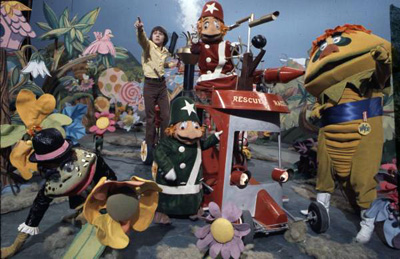I mentioned in a previous post about Frederick Wertham debating Al Capp on The Author Meets The Critics that Wertham appeared also on another episode… I recently listened to it. You can do so here.
Wertham gets completely destroyed in the debate by Edwin J. Lucas, who makes good use of Wertham’s own words in discrediting him. As stupid as Wertham sounds, he is joined by another even less coherent person apparently also making a career out of disparaging funny books, a miss Virginia Peterson… she does a lot to make his case even weaker.
In spite of being squarely on his side in the debate, I disagree with the fundamental argument Mr. Lucas makes, though.
Personally, I am a first amendment extremist… but I no longer buy the argument that is often made by other first amendment extremists that a reader’s behavior is not affected by media that they intake.
To claim that a child is always unaffected behaviorally by a violent image unless they were previously maladjusted seems deeply disingenuous. Few would argue that a child can not be positively influenced by media (after all, textbooks are media, right?)… so why wouldn’t they be able to be negatively influenced by it?
The real issue… which, strangely, no one seemed to be arguing at the time… is that artists and writers should be able to make any sort of art they damn well please without having to cater to censors or worry about what effect it will have on their readers. Their job is to make the art, not to worry about what effect it will have.
If the media consumers do not like something they read, watch or listen to, they can choose not to read, watch or listen to it. If they are children, their parents should be taking responsibility for what media they are exposed to. Obviously, no parent can monitor everything that a child sees… nor should they attempt to. But to censor media out of concern that children could potentially be exposed to it is reprehensible, as it comes at an enormous cost to freedom of expression.
This cost of this sort of censorship can be easily evidenced by reading a sampling of comics made before and after the comics code was implemented. Before the code, there were many vibrant and entertaining comics… after the code entertaining comics were few and far-between. Readership plummeted. The art form was effectively neutered for years until the underground comics brought it back from the dead with a vengeance… and that was for a comparatively microscopic audience.
The effect of the censorship is still felt… comics have not sold in anywhere near the same numbers as they did before the code to this day. In the mid-fifties, Walt Disney’s Comics and Stories had a monthly circulation of over three million copies. Almost every kid read comics… needless to say, literacy rates were much higher. Now 100,000 copies sold of a comic book is considered wildly successful. While obviously censorship is not the only reason for this, I would guess it may be one of the biggest ones.





